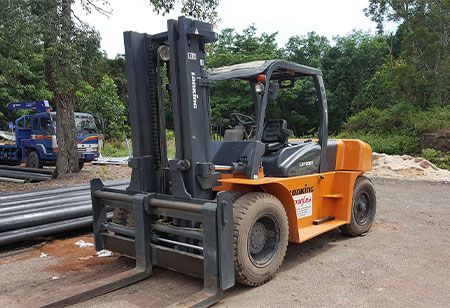
Selecting the proper material handling equipment is crucial for any warehouse, distribution centre, or manufacturing facility. The right machinery can maximise productivity and efficiency while minimising costs. This guide will explore key factors to consider when choosing material handling solutions for your UK operations.
One of the first steps is honestly assessing your budget limitations. Brand-new equipment directly from manufacturers can be quite expensive. Purchasing high-quality used equipment from reputable dealers can provide tremendous value and cost savings.
Used equipment like the equipment from Lisman forklifts will have some operational hours logged but plenty of good working life remaining if it has been properly refurbished and maintained. Reputable used equipment dealers thoroughly inspect each machine, test functionality, and repair or replace any worn components before resale. This process ensures the equipment is in sound mechanical condition and ready for many more years of service at a fraction of new equipment costs.
Prioritising used equipment, such as used telehandlers, where feasible, enables your limited budget to stretch further and obtain additional necessary material handling machines.
Beyond budgetary constraints, take time to thoroughly evaluate the unique needs of your operations. Important factors to analyse include:
Carefully examining your specific workflows, work environments, and personnel capabilities provides vital data to select equipment well-suited to your needs. This improves productivity, safety, and cost-effectiveness.
The ongoing maintenance and operator training requirements are also key considerations. More complex or automated equipment often requires more specialised technical knowledge for proper maintenance and repair. Regularly scheduled preventative maintenance is crucial for longevity regardless of equipment type.
Additionally, the skill level and experience of your operators impact the amount and type of training required. Complex or sensitive machinery necessitates more hands-on instruction. Effective operator training improves safety and efficiency.
Assessing your maintenance staffing and operator training budgets helps identify simpler or more manual equipment options that meet needs while reducing costs.
While assessing your own requirements is crucial, if you want to choose the right machinery and create a successful business, you must also leverage the knowledge of experienced equipment dealers. Reputable dealers have an extensive understanding of machinery options and key factors in determining ideal solutions across various industries. Dealers can provide overview demonstrations and allow hands-on testing of machines to illustrate capabilities and ease of use. Discussing your unique operational needs with dealers can help identify the most fitting equipment types and configurations.
Selecting material handling equipment requires aligning budget constraints with operational needs. Adjusting spending towards used equipment provides cost-effective reliability. Thoroughly evaluating your workflows, environment, staffing, and training needs allows choosing productivity-enhancing machinery tailored to your UK operations.
We use cookies to ensure you get the best experience on our website. Read more...